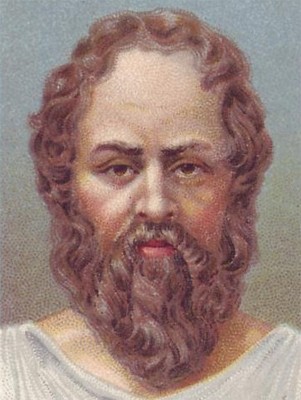Saturday, April 26, 2014
Thank You All
Monday, April 7, 2014
Unit 7 Genetics & Inheritance
Mr. Moreau's Print Out Notes (Condensed Version)
Mr. Moreau's PowerPoints
Mr. Moreau's PowerPoints
Saturday, April 5, 2014
Thursday, March 6, 2014
New Unit New Beginnings DNA Structure, Replication, Transcription, Translation, and Mutations
DNA Unit PowerPoints
A.) DNA Structure & ReplicationB.) Transcription & Translation
C.) Mutations Notes (your only responsible to know point mutations)
Study Guide Answers
Unit 6 Study Guide Answers
DNA Project
Replication, Transcription, Translation Practice
DNA Cartoons
Thursday, February 27, 2014
Test on Wednesday
What You Need To Know
. Mitosis & Meiosis: Know all phases and the differences between both process.
. Karyotyping: Be able to determine normal vs. abnormal karyotypes, a person's sex, and autosomal/sex chromosomes.
. Cancer (More on cancer on Monday & we will finish the shotgun review)
Tuesday, February 25, 2014
Unit Test Study Materials
The above link gives you key differences between the two processes. It also will help you figure out how to word your essays in a way which is acceptable.
Thursday, February 6, 2014
Supplemental Learning Materials
B.) Meiosis Video
Khan Academy is a non-profit[3] educational website created in 2006 by educator Salman Khan, a graduate of MIT and Harvard Business School. The stated mission is to provide 'a free world-class education for anyone anywhere'.
The website features thousands of educational resources, including a personalized learning dashboard, over 100,000 exercise problems, and over 4000 micro lectures[1] via video tutorials stored on YouTube teaching mathematics, history, healthcare, medicine, finance, physics, general chemistry, biology, astronomy, economics, cosmology, organic chemistry, Americancivics, art history, macroeconomics, microeconomics, and computer science.[4] All resources are available for free to anyone around the world. Khan Academy reaches about 10,000,000 students per month and has delivered over 300,000,000 lessons.
Monday, February 3, 2014
Introduction
Welcome Students & Parents
"Education is the kindling of a flame, not the
filling of a vessel.”
Socrates
It is my
fundamental belief that learning is more than test taking and fact
memorization. Instead, the high quality education your students will receive in
my class will focus on the process of learning and the use of higher order
thinking skills. (Problem solving, critical thinking, idea synthesis) When
considering Socrates’ quote, it would be a waste of your children’s
intellectual abilities to teach them fact upon fact without providing any hint as
to its relevance. Therefore, I will not “fill” their minds with facts that can
be so easily forgotten. Instead, I will focus my efforts on strengthening core
skills and teaching my students how to think. To accomplish this, the following
three elements will prove pivotal to my instruction.
1.) Engaging Students
I will
strive to engage my students by sharing with them my passion for science. I
will help them find something in science they can relate to and take interest
in. In proving to students why the material is relevant to their lives,
students become much more likely to take an “active” role in their learning.
The engagement and enthusiasm imparted by the teacher can spark an interest in
students which represents the kindling of a flame. As it burns the flame
becomes hungry for more information, ideas, and understanding. Curiosity marks
the beginning of a student’s journey down the road of wisdom & knowledge.
2.) Teaching Students How To
Think Critically and Understand What They Are Learning
The
purpose of school is not to teach students all that there is to know about
living in the adult world.
3.) Reaching All Students
All children
can learn given the right tools for success. However, the tools which may work
for one student will not necessarily work for another student. The reason for
this is because not all students learn the same. Some learn visually and by
listening while others may learn by using their hands (kinesthetic) and interacting
with their peers. As a result it is my most earnest intention to reach out to
all students and to teach them in a way which is accessible to them. I will
accomplish this by using multiple mediums of instruction such as PowerPoint
presentations, graphic organizers, hands on activities/labs, large scale models
and in-class demonstrations.
Your children will need to be dedicated
to their studies to reach the high standards I hold them to. I also
will commit myself to their success.
I will do this by:
. Happily respond to any and all
questions
. Promptly responding to all emails
. Making myself available after
school for tutoring
. Listening to my students and
tracking their progress so that my instruction can be adjusted according to their
needs.
. Provide appropriate accommodations
& modifications
. Provide all students with prompt feedback on their performance
Just
as Batman has a tool on his utility belt to accomplish almost any task, there
exist consistent teaching and learning strategies that will help make students
better learners. One of the best tools students can possess for success is an
ability to read and write well. Therefore, to help students develop their
reading skills lessons will be infused with opportunities for reading and
writing. I believe that strong reading and writing skills are a student’s BEST TOOL FOR SUCCESS!!!
Consistently
exposing students to a healthy diet of reading material is critical to help
advance their reading and writing skills. Such material includes not only text
readings but also official research papers, lab reports, and thought provoking
science articles which speak on recent advancements in the scientific
community. To sweeten their reading diets, excerpts from fictional scientific
literature may be discussed to engage students and assess the works scientific
validity.
The
various forms of literature are often used together and mingled into various
parts of a daily lesson. For example, one interesting lesson I have planned for
this year requires students to break down a scientific article which discusses
cell and DNA mutations. Instead of having students tackle the article blindly
they are gradually introduced to the topic using pre-reading, during reading,
and after reading materials.
Subscribe to:
Posts (Atom)


.jpg)












